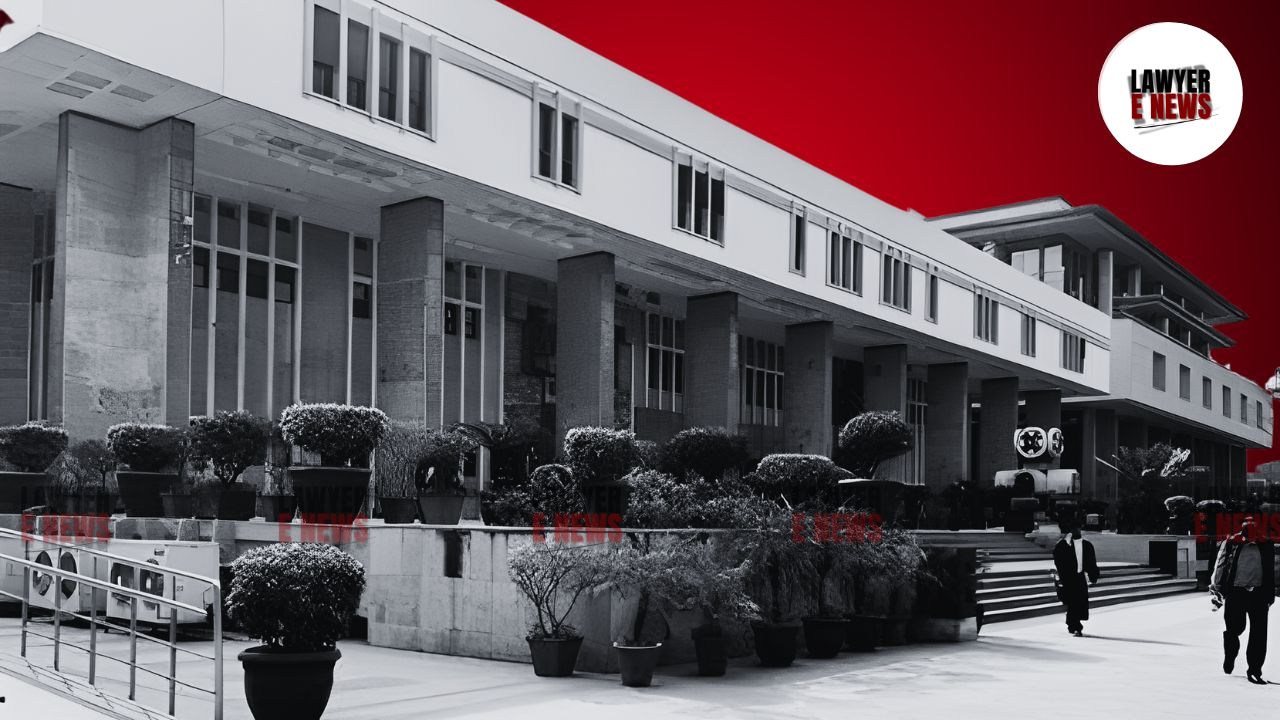-
by Admin
15 February 2026 5:35 AM



Delhi High Court ruled that the writ petition filed by Thokchom Shyamjai Singh and others, challenging their arrest and remand by the National Investigation Agency (NIA), was maintainable, despite the NIA’s objection based on the principle of constructive res judicata. The petitioners were arrested for their alleged involvement in a terror conspiracy, but the court held that the petition concerning their personal liberty warranted judicial scrutiny.
The High Court emphasized that technicalities should not obstruct the consideration of petitions concerning personal liberty, especially where fundamental rights under Articles 21 and 22 of the Constitution are invoked.
The petitioners were arrested on March 13, 2024, by the NIA in connection with a transnational conspiracy to incite violence in Manipur. Allegedly linked to the United National Liberation Front (UNLF), the petitioners were accused of planning terrorist attacks and waging war against the Government of India. They were charged under sections 120-B, 121-A, and 122 of the Indian Penal Code (IPC) and sections 18, 18-B, and 39 of the Unlawful Activities (Prevention) Act (UAPA), 1967.
Initially, the petitioners filed a habeas corpus petition (W.P. (CRL) No. 975/2024) in March 2024, which was dismissed as withdrawn on April 16, 2024, with liberty to pursue the same issues before a "Competent Court/Forum." In the current writ petition, they sought to challenge their arrest and the remand orders issued by the Special Court.
The NIA contended that the current petition was not maintainable due to the principle of constructive res judicata, arguing that the petitioners had already agitated similar issues in the earlier petition. Additionally, the NIA claimed that the earlier withdrawal did not include express permission to file another writ petition before the same High Court. Therefore, the petitioners should have sought recourse in the Supreme Court or challenged the remand under the NIA Act in the Special Court.
The petitioners, represented by Mr. Siddhartha Borgohain, argued that the earlier petition had been filed when they were unaware of the grounds of their detention. The withdrawal of the petition occurred after realizing that they were in NIA custody following their arrest on March 13, 2024. Given that the earlier petition was for habeas corpus and did not address the legality of the arrest and remand orders, the petitioners claimed that the present writ petition, focused on their fundamental rights under Articles 14, 21, and 22, was distinct and maintainable.
They further argued that the liberty granted by the Division Bench to pursue the same issues before a "Competent Court/Forum" should include the current writ petition before the Single Bench.
The court rejected the NIA's contention, noting that the earlier withdrawal did not bar the petitioners from filing a fresh writ petition concerning their personal liberty. Citing the Supreme Court’s decision in Sarguja Transport Service v. State Transport Appellate Tribunal, the High Court pointed out that the rule against re-filing a withdrawn petition does not apply to cases involving personal liberty.
“In matters concerning questions of personal liberty, it would never be just or proper to reject a plea based on a pedantic, hyper-technical, or restrictive construction of an earlier court order, especially when that order expressly grants liberty to agitate the same issues before the competent court or forum.”
The court concluded that the petitioners’ challenge to their arrest and remand was permissible under Article 226 of the Constitution, which allows the High Court to issue writs for the enforcement of fundamental rights. The court also acknowledged that no statutory remedy under the NIA Act was available for challenging remand orders, which were interlocutory in nature.
The Delhi High Court ruled that the writ petition challenging the arrest and remand of the petitioners was maintainable. The court dismissed the NIA’s preliminary objection based on constructive res judicata, allowing the case to proceed on its merits.
Date of Decision: October 1, 2024
Thokchom Shyamjai Singh & Ors. v. Union of India Through Home Secretary & Ors.
